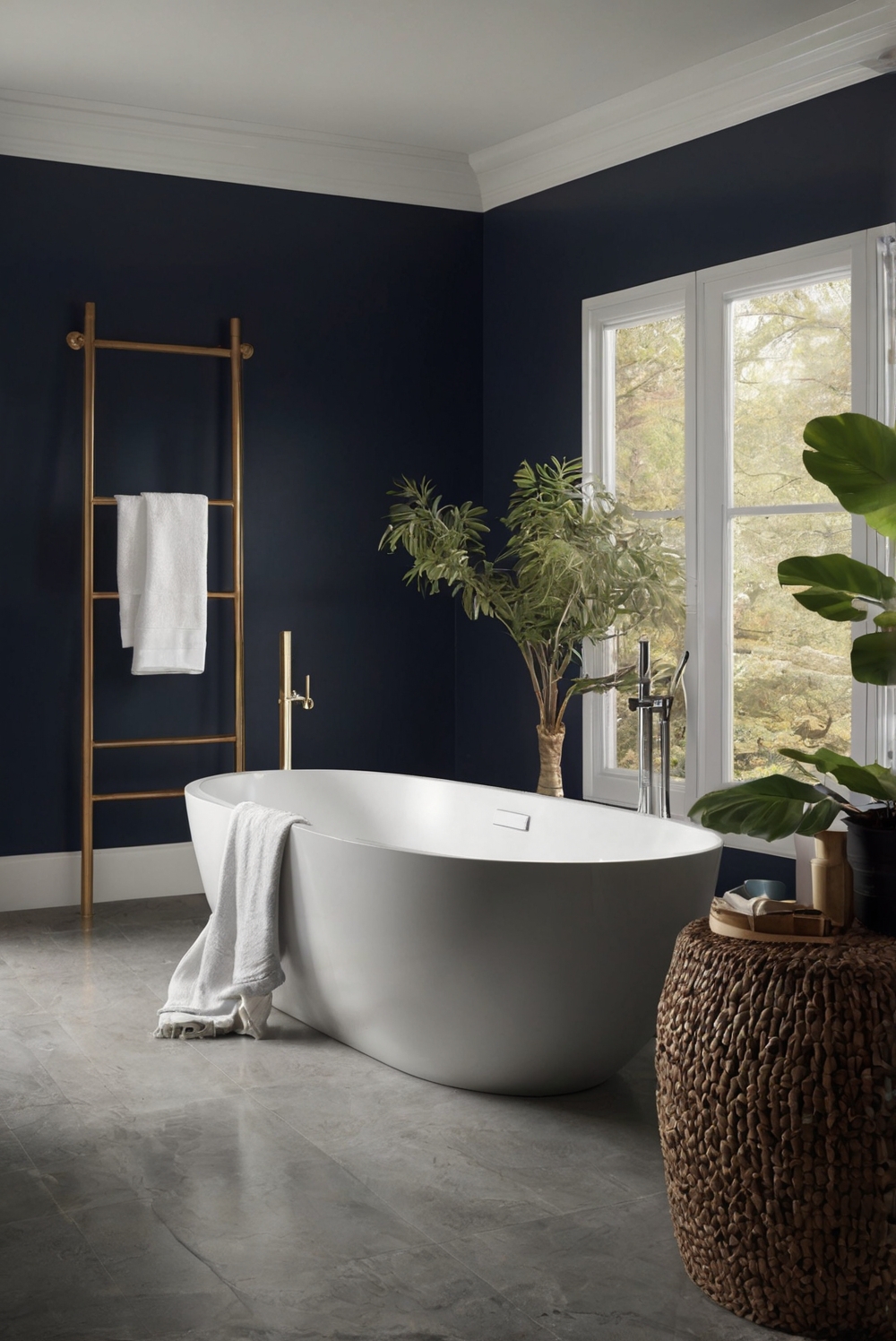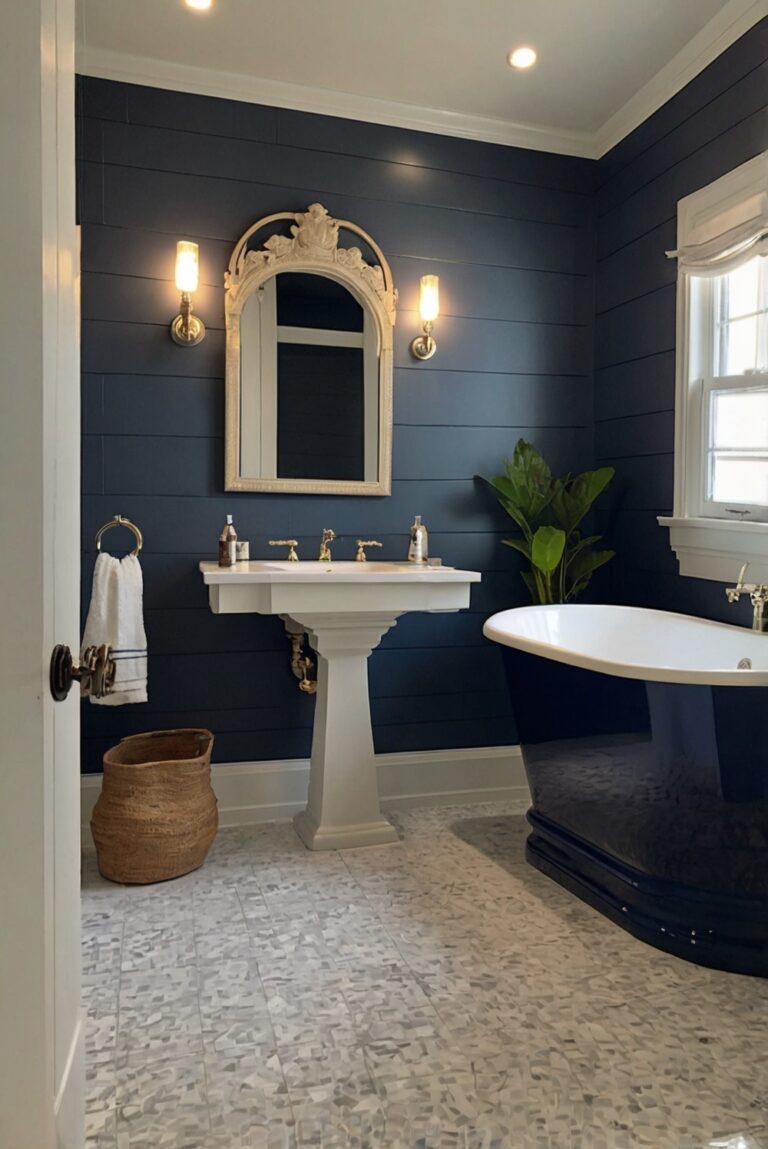Explore the essential steps to select the perfect material for your bathroom sink in this daily routine guide for interior designers. Elevate your design game with the right choice!
**How to Choose the Best Material for Your Bathroom Sink?**
Answer: When choosing the best material for your bathroom sink, consider factors like durability, aesthetics, maintenance, and budget. Porcelain or ceramic sinks are popular for their versatility and easy maintenance. If you prefer a modern look, stainless steel or glass sinks could be a great option. Stone sinks such as granite or marble add a touch of luxury but require more upkeep. Cast iron sinks are durable but heavy. Take into account your bathroom decor and style preferences. Additionally, ensure the material chosen is suitable for the level of use and water exposure in your bathroom. Research different materials and consult with a professional if needed to make an informed decision.
To enhance your home decor interior design, consider the following tips:
1. Select a sink material that complements the overall design aesthetic of your bathroom.
2. Ensure the chosen material aligns with the level of maintenance you are willing to commit to.
3. Check the durability of the material to ensure it can withstand regular use.
4. Balance your budget with the desired quality and appearance of the sink.
By following these guidelines, you can choose the best material for your bathroom sink that fits your home interior and design preferences.
Factors to Consider When Choosing the Best Material for Your Bathroom Sink
When selecting the material for your bathroom sink, several factors should be taken into consideration to ensure that you make the best choice for your needs and preferences. Some of the key factors to consider include durability, maintenance requirements, aesthetics, cost, and compatibility with your bathroom design.
1. Durability
One of the most important factors to consider when choosing the best material for your bathroom sink is durability. The material you choose should be able to withstand daily use and resist chipping, scratching, and staining. Popular durable materials for bathroom sinks include porcelain, ceramic, and stainless steel.
2. Maintenance Requirements
When selecting a material for your bathroom sink, it is essential to consider the maintenance requirements of each option. Some materials may require more frequent cleaning or special care to maintain their appearance. For example, natural stone sinks may need to be sealed periodically to prevent staining.
3. Aesthetics
The aesthetic appeal of the sink material is another crucial factor to consider. The material you choose should complement the overall design and style of your bathroom. Whether you prefer a sleek modern look or a more traditional appearance, there are various materials available to suit your taste.
4. Cost
Cost is an important consideration when choosing the best material for your bathroom sink. Different materials come at varying price points, so it’s essential to consider your budget when making your selection. While some materials may be more expensive upfront, they may offer long-term durability and aesthetic value.
5. Compatibility with Bathroom Design
It is crucial to ensure that the material you choose for your bathroom sink is compatible with the overall design and style of your bathroom. Consider factors such as the color scheme, fixtures, and accessories in your bathroom when selecting a sink material to ensure a cohesive and harmonious look.
In conclusion, choosing the best material for your bathroom sink requires careful consideration of factors such as durability, maintenance requirements, aesthetics, cost, and compatibility with your bathroom design. By weighing these factors and selecting a material that meets your needs and preferences, you can create a functional and visually appealing bathroom space.
1. What are the different materials available for bathroom sinks?
There are several materials to choose from when selecting a bathroom sink. Some popular options include porcelain, ceramic, stainless steel, cast iron, glass, and natural stone such as marble or granite. Each material has its own unique characteristics in terms of durability, appearance, and maintenance requirements.
2. What factors should I consider when choosing a material for my bathroom sink?
When selecting a material for your bathroom sink, consider factors such as durability, maintenance, aesthetics, and budget. Porcelain and ceramic sinks are easy to clean and budget-friendly, while stainless steel sinks are durable and resistant to stains. Natural stone sinks add a touch of luxury but require more maintenance.
3. How do I determine the durability of a material for a bathroom sink?
To assess the durability of a material for a bathroom sink, consider its resistance to scratches, stains, and heat. Stainless steel sinks are highly durable and resistant to most damage, while porcelain and ceramic sinks are prone to chipping and scratching. Natural stone sinks like marble require sealing to prevent damage.
4. What are the maintenance requirements for different sink materials?
The maintenance requirements for bathroom sink materials vary. Porcelain and ceramic sinks are easy to clean with mild soap and water but can chip easily. Stainless steel sinks are low maintenance and resistant to stains. Natural stone sinks require regular sealing to prevent staining and damage.
5. How can I choose the best material for my bathroom sink based on my needs?
To choose the best material for your bathroom sink, consider your priorities. If durability is crucial, opt for stainless steel or cast iron. For a luxurious look, natural stone like marble or granite is a good choice. If budget and easy maintenance are your main concerns, porcelain or ceramic sinks are ideal. Assess your needs and preferences to make an informed decision.







